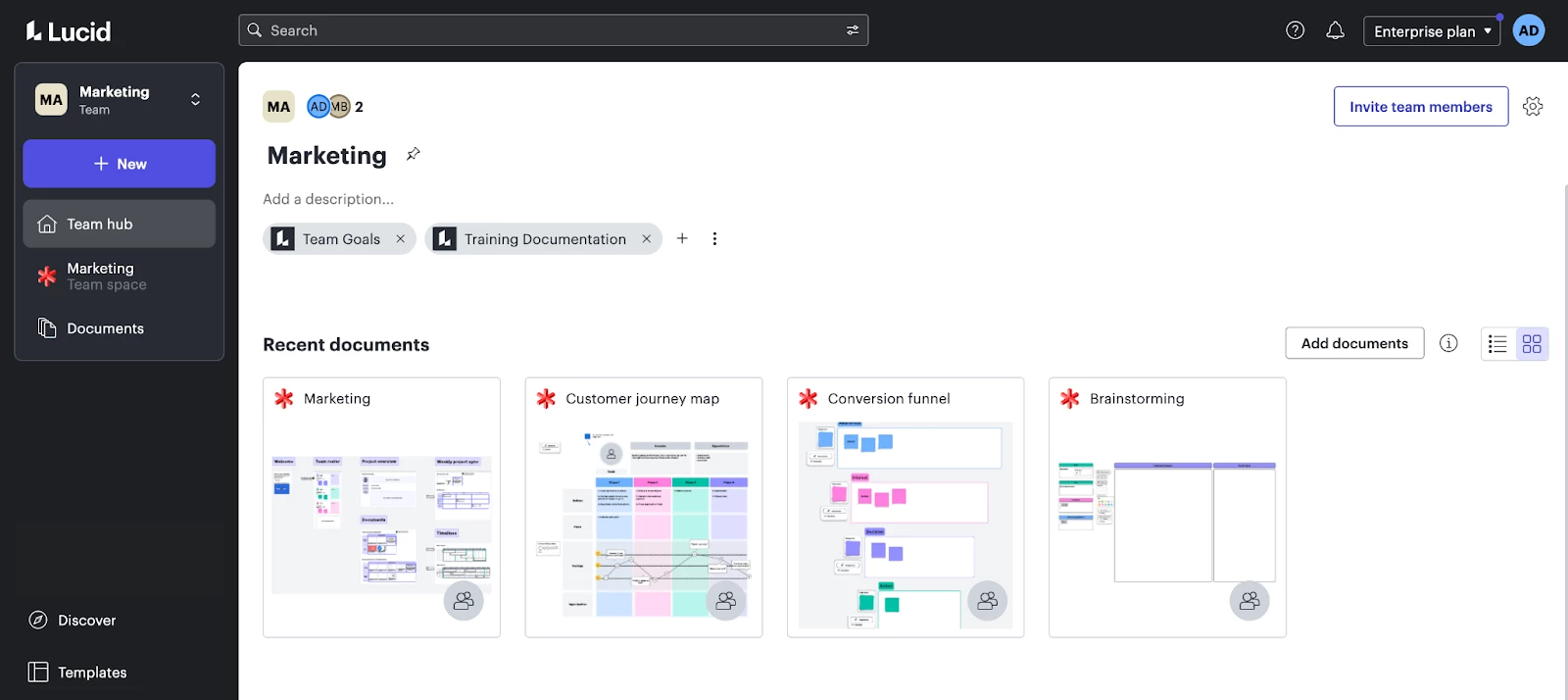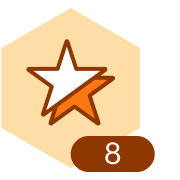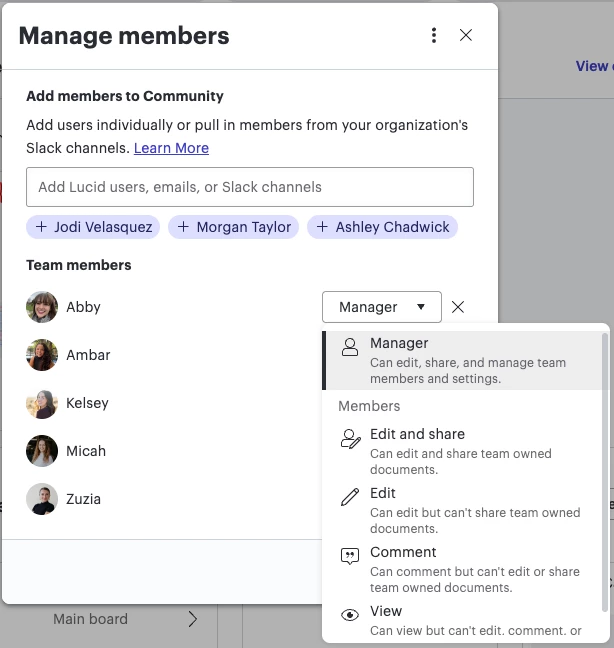Lucid has a variety of features designed to efficiently organize teams and build structured workflows for your organization. Here’s a guide on how to differentiate Team accounts, team hubs, and team folders.
Lucid offers a variety of plans, including a Team account subscription. Team accounts have access to several premium features in Lucidchart or Lucidspark, including the ability to share documents and folders with other licensed users on your team. To learn how, check out the Share with Collaborators in Lucid article.
To check your Lucid plan subscription level, log in to the Lucid home page and click on the dropdown in the upper right hand corner. You’ll notice in the example below that this user has a Team Lucidchart account.
However, Team accounts don’t have access to Enterprise features, such as team hubs and team folders. To learn more about what is offered in Team account subscriptions, please visit the Lucid Plans article.
Team hubs are available to Enterprise and FedRAMP accounts. Account members at these subscription levels can organize themselves into team hubs- a central shared space for teams to access important documents, track project progress, and access important links.
Team hubs can include the following items:
- Team space - a document that serves as a team’s home base
- Team documents - Lucid documents created within or transferred to the team hub
- Quick links - links to external team resources
- Blueprints - available to Enterprise accounts that have purchased the Agility Accelerator

To view your teams or create a new team, log into the Lucid home page and select your personal space in the top left corner.
To learn more about Team hubs, check out the Use team hubs in Lucid to collaborate and stay organized article from the help center.
Team folders are available to Enterprise and FedRAMP accounts created before May 15, 2024. Enterprise accounts created after May 15, 2024 do not have access to team folders. Instead, we recommend utilizing team hubs instead.
Team folders allow you to store documents in one place. It also allows teams to retain important documents because team folders are owned by the Enterprise account, so if a user is removed from the account, you won’t lose any documents they’ve added to team folders.
To learn more about team folders, check out the Create team folders article.
Please note that team folders are not available to Team accounts. We recommend Team accounts create shared folders instead as described in the Share with Collaborators in Lucid article. The main difference between a team folder and a shared folder is ownership. A shared folder is owned by an individual, whereas a team folder is shared by the account as described above.
FAQs
I’m on a Team account and still don’t have access to team hubs or team folders. Why?
- Team hubs and team folders are Enterprise-level features, so they are not available to Team accounts. To learn more about what is offered at your subscription level, check out the Lucid Plans article.
I’m on a Team account and need a centralized location for my team’s documents. Where should we store our documents?
- The best method is to create a folder and share it with collaborators following these steps. The folder you create will appear in the collaborators’ “Shared with Me” folders.
I’m the account owner or admin of an Enterprise account. Should I use team hubs or team folders to organize my teams and documents?
- We’d recommend creating teams for your organization, and each team will automatically have their own team hub to organize their documents. Account owners and admins can see a list of all teams and their team members in the Groups section of the admin panel.




